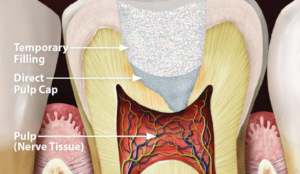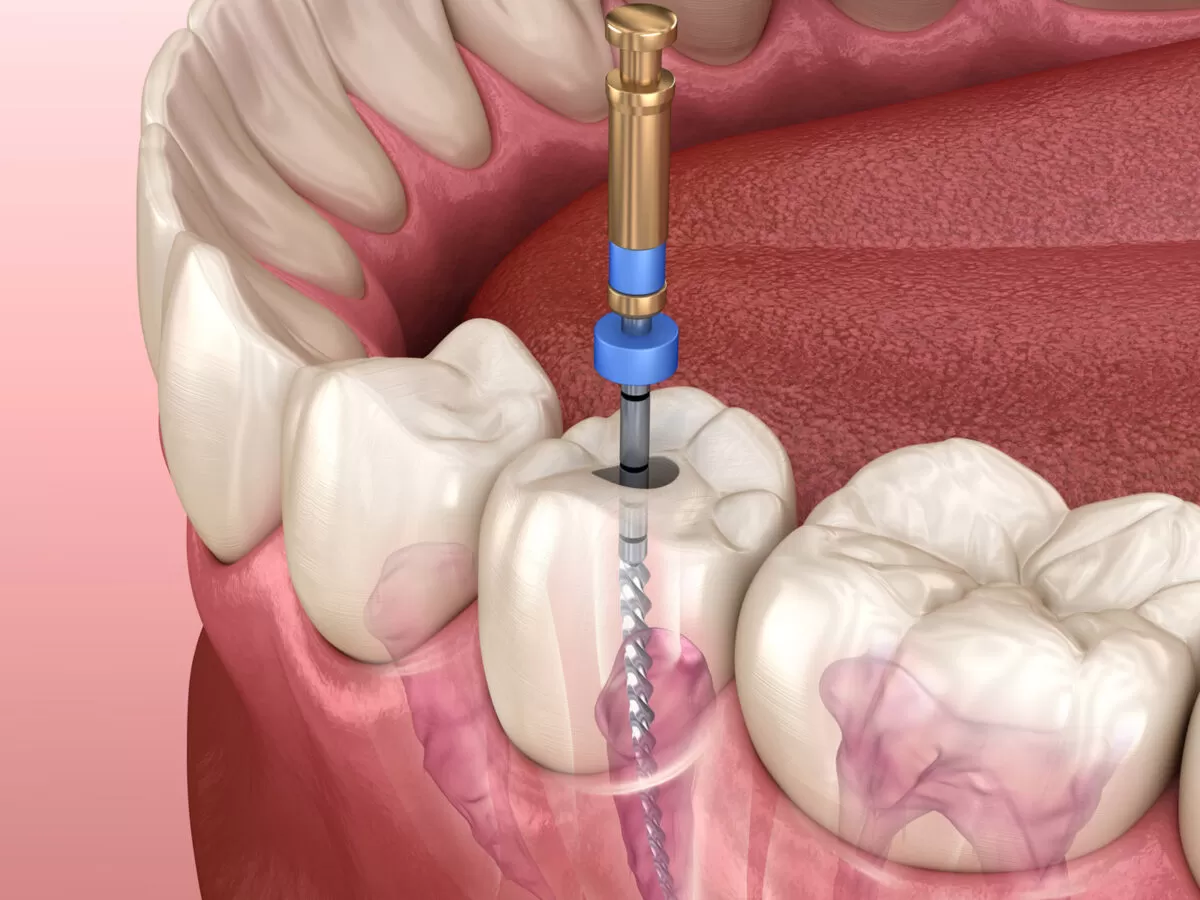At some point in our lives, many of us may face the possibility of needing a root canal. The thought of undergoing this dental procedure can be intimidating, as root canals are often associated with pain and discomfort. However, it’s important to remember that a root canal is a highly effective treatment for saving a tooth that is severely damaged or decayed. That being said, there are alternatives to root canal treatment that may be considered in certain situations. In this comprehensive guide, we will explore these alternatives, their benefits, and when they may be appropriate.
Understanding Root Canal Treatment
Before delving into the alternatives, let’s first understand what a root canal treatment entails. A root canal, also known as endodontic treatment, is a dental procedure that aims to eliminate infection from within a tooth and protect it from future infections. It is typically recommended when the pulp of a tooth becomes inflamed or infected due to deep cavities, cracks, or previous dental procedures.
During a root canal, the dentist or endodontist will remove the infected pulp from the tooth and thoroughly clean and disinfect the interior. Once the tooth is free from infection, it is filled with a special material and sealed to prevent further bacterial invasion. In most cases, a crown is placed over the treated tooth to restore its strength and functionality.
Root canals have a high success rate and can save a tooth from extraction. However, there are instances where alternative treatments may be considered. Let’s explore these alternatives in detail.
1. Direct Pulp Capping

One alternative to root canal treatment is direct pulp capping. This procedure is recommended when the pulp of a tooth is minimally exposed, and there is little to no decay or inflammation present. Direct pulp capping involves placing a protective material, such as calcium hydroxide or mineral trioxide aggregate (MTA), over the exposed pulp to promote healing and prevent bacterial infection.
Direct pulp capping is a less invasive and less painful procedure compared to a root canal. It is often used as a preventive measure to avoid the need for more extensive treatments. However, it is important to note that direct pulp capping is NOT suitable for all cases and requires specific criteria for success.
2. Pulpotomy
Similar to direct pulp capping, pulpotomy is a procedure that aims to preserve the vitality of the tooth while treating the infected or inflamed pulp. It is mainly performed on primary (baby) teeth or permanent teeth with young and healthy pulp.
During a pulpotomy, the dentist removes the pulp from the crown of the tooth while leaving the roots intact. The remaining pulp chamber is then treated with a medicated material to promote healing and prevent further infection. Pulpotomy is often considered a temporary solution for children with severe tooth decay until the tooth naturally falls out.
3. Indirect Pulp Capping
Indirect pulp capping is a treatment option used when the tooth’s enamel exhibits minimal decay or damage, and the pulp has not been exposed. This procedure aims to prevent further damage to the tooth and promote dentin repair.
During indirect pulp capping, the dentist removes the decayed portion of the tooth and places a protective material over the remaining dentin. This material acts as a barrier, preventing bacteria from reaching the pulp and causing infection. Indirect pulp capping is typically reserved for cases where the pulp is still healthy and there is a chance for natural healing.
4. Calcium Hydroxide Treatment
In some cases, calcium hydroxide treatment may be used as an alternative to a root canal. This treatment involves irrigating the root canal with a solution containing calcium hydroxide, which helps kill bacteria and eliminate infected tissues within the tooth canals.
The use of calcium hydroxide in root canal treatment aims to inhibit microbial growth and promote healing. However, it is important to note that this alternative is not commonly prescribed due to the potential toxicity of the gas mixtures involved. Therefore, calcium hydroxide treatment is not widely practiced as an alternative to root canals.
5. Tooth Extraction and Replacement Options
In cases where a tooth is severely damaged or the infection cannot be effectively treated with alternative procedures, tooth extraction may be recommended. Although extraction may seem like an extreme measure, it can be a viable option for certain individuals.
After a tooth extraction, there are several replacement options available to restore the functionality and aesthetics of the missing tooth. These options include:
- Dental Implants: Dental implants are a permanent solution for replacing missing teeth. They involve surgically placing a titanium post into the jawbone, which serves as a replacement for the tooth root. An artificial tooth, known as a crown, is then attached to the implant, providing a natural-looking and functional replacement.
- Dental Bridges: Dental bridges are another option for replacing missing teeth. They consist of one or more artificial teeth (pontics) that are anchored by crowns on adjacent healthy teeth. Dental bridges can restore a natural smile and improve chewing ability.
- Dentures: Dentures are removable appliances that replace multiple missing teeth or a full arch of teeth. They can be made of acrylic or a combination of acrylic and metal. Dentures provide an affordable and non-invasive option for replacing missing teeth.
It is important to consult with a dental professional to determine the most suitable replacement option based on your specific needs and oral health condition.
6. Natural Remedies for Dental Health
In addition to the above-mentioned alternatives, maintaining good oral hygiene and adopting natural remedies can greatly contribute to dental health and potentially prevent the need for root canal treatment. Here are some natural remedies that can promote oral health:
- Brushing and Flossing: Brushing your teeth at least twice a day and flossing daily helps remove plaque and prevent tooth decay. Use a fluoride toothpaste and a soft-bristled toothbrush for effective cleaning.
- Healthy Diet: Consuming a balanced diet rich in nutrients, such as vitamins and minerals, can support healthy teeth and gums. Avoid excessive consumption of sugary and acidic foods, as they can contribute to tooth decay.
- Saltwater Rinse: Rinsing your mouth with warm saltwater can help reduce inflammation and kill bacteria. Dissolve half a teaspoon of salt in a glass of warm water and swish it around your mouth for 30 seconds before spitting it out.
- Herbal Remedies: Some herbal remedies, such as tea tree oil or garlic, may have antimicrobial properties that can help combat oral infections. However, it is important to consult with a dental professional before using these remedies to ensure their safety and effectiveness.
While natural remedies can be beneficial for maintaining oral health, it is essential to seek professional dental care if you experience severe pain, swelling, or signs of infection. Natural remedies should be seen as complementary to professional dental treatments rather than standalone alternatives.
Conclusion: Choosing the Right Alternative
When it comes to dental health, prevention is always better than cure. Maintaining good oral hygiene practices, visiting your dentist regularly, and addressing dental issues promptly can help prevent the need for extensive treatments like root canals.
However, if you find yourself in a situation where a root canal is recommended, it is crucial to discuss the alternatives with your dentist. Each case is unique, and the appropriate alternative treatment will depend on factors such as the extent of the infection, the condition of the tooth, and your overall oral health.
Remember, your dentist is the best person to guide you through the decision-making process and help you choose the right treatment option. By considering all the available alternatives and weighing their pros and cons, you can make an informed decision that will lead to optimal dental health and wellbeing.
At Picasso Dental Clinic, we prioritize the oral health and satisfaction of our patients. With a team of experienced professionals and a wide range of dental services, including alternatives to root canal treatment, we are committed to providing the highest quality care. Contact us today to schedule a consultation and discover the best dental solutions for your needs.
Additional Information: Picasso Dental Clinic is one of the best dental clinics in Vietnam, providing a full range of dental services from a simple checkup to complicated procedures such as braces, Invisalign, and full mouth implants. Since 2013, we have served over 57,000 overseas patients from 62 different nationalities.

